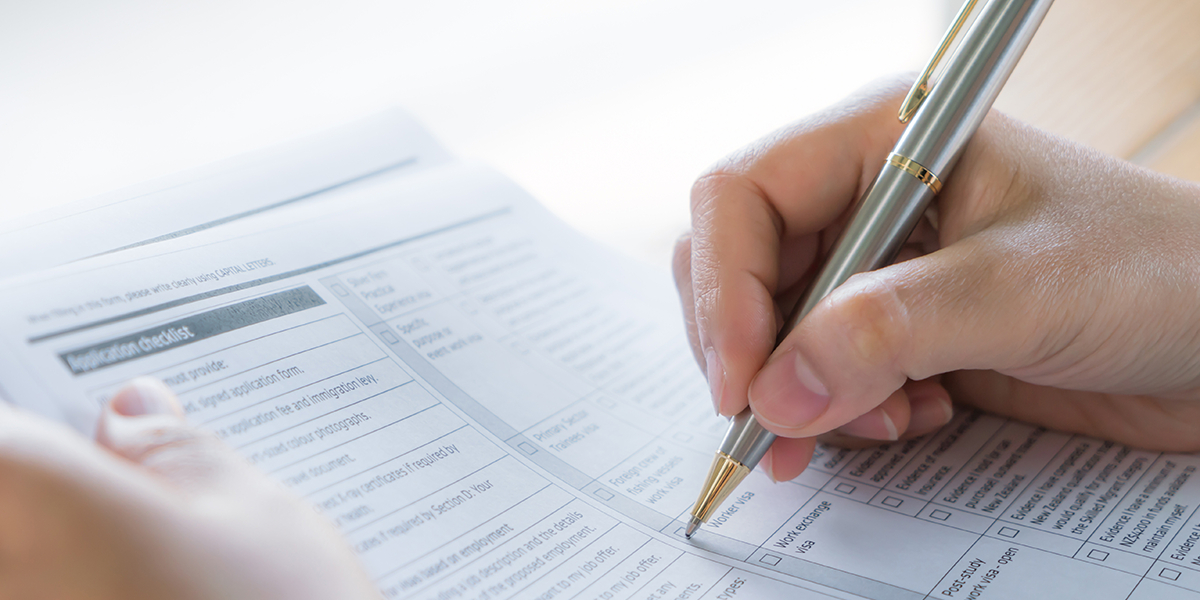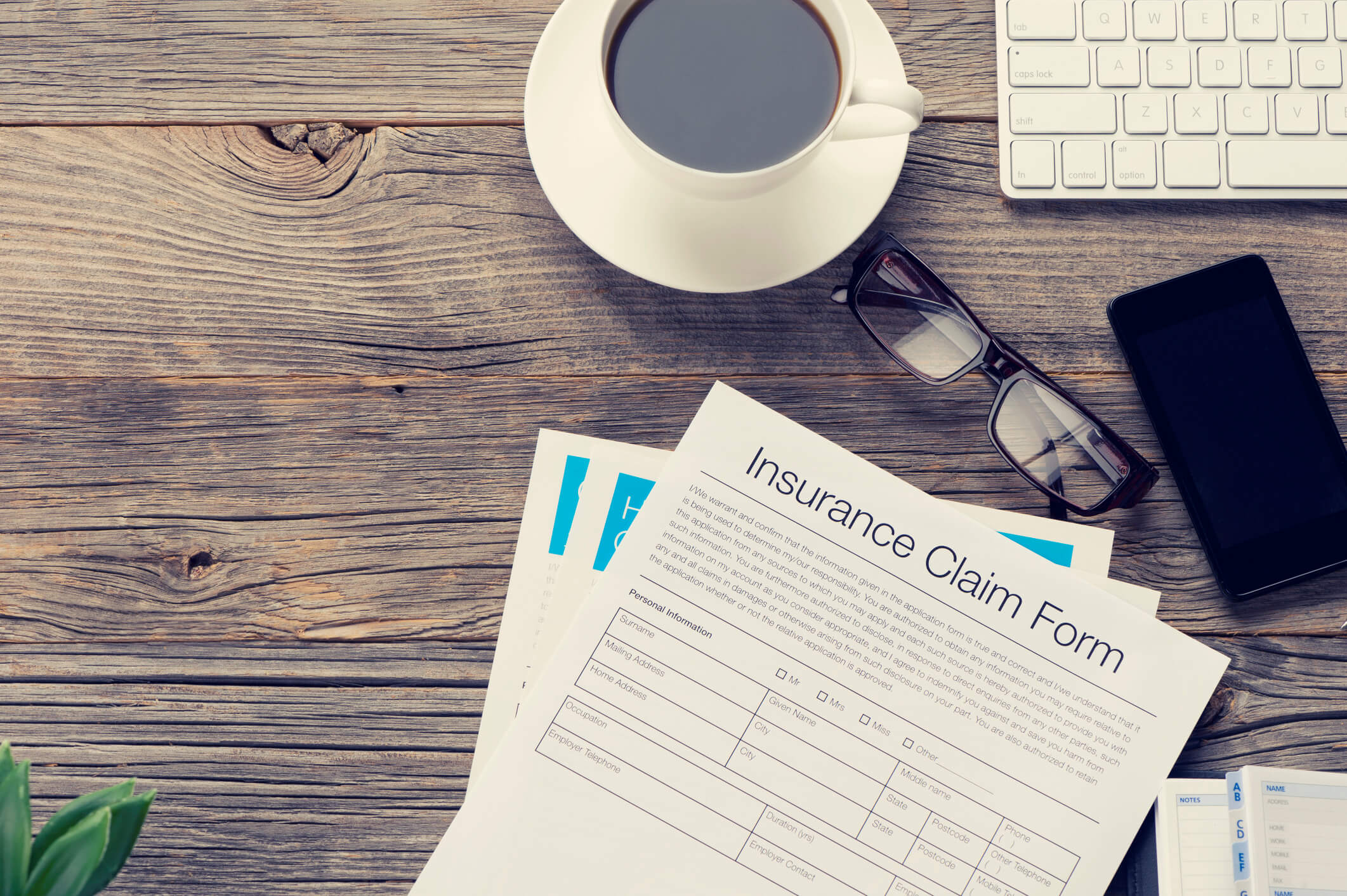Guide to helping your business make a stress-free claim
Lodging an insurance claim is never a fun time for anyone, involving the loss or damage to something that mattered to your business due to a disastrous event. It can be a highly stressful time, but it doesn’t have to be. After a claim you just want your small business to go back to running like normal with as little disruption as possible. This guide is designed to help you as a small business owner to keep things as stress-free as possible if a claim does occur.
Preparation is key
Being prepared will assist the process and make it that bit easier when it comes to claim time. While it is always important to ensure you have the right insurance policy in place to protect your business, these are a few things that you can do upfront to help when making a claim.
Understand the details
As a small business owner, your time is precious and sitting down to read your insurance policy’s ‘Policy Wording’ or ‘Product Disclosure Statement’ (aka PDS) probably isn’t a high priority. However, it is important and while at times it may feel a bit a daunting, it doesn’t have to be too complicated. If you’re ever unsure of what your policy covers, jump on the phone and have a chat to your insurer to clarify any questions you may have.
Speaking with your insurance agent can help explain the important things about your policy that you need to know- without the jargon. It’s a good idea to review your policy and take the time to understand exactly what you’re covered for.
Important things to check are:
- What events does your policy cover you for?
- What are the exclusions?
- How much is your excess?
- How much are you covered for?
- Are there any sub-limits?
- Do any waiting periods apply?
If you are not covered for events that may impact your business, it may be worthwhile to talk to your insurance provider about extending your cover or purchasing additional policies. While you will not typically be able to buy insurance to cover an incident that has already occurred, having the right insurance protection moving forward should give you better peace of mind.
Proof of purchase
If a claim were to occur involving physical property (think for example stock, machinery or other equipment) you may need to present proof of ownership as part of the lodgement process. It’s important to keep your purchase receipts and anything else that provides proof of ownership of items in a safe and central place that can be easily accessed when needed. Remember the more detail the better so try and record serial numbers and photographs of your items where possible.
Another tip is to keep an electronic backup of your data in case you cannot access the originals or they are destroyed. This may be on a hard-drive or stored in a secure cloud program.
In the event, you need to have emergency repairs carried out (for example the assistance of plumbers or electricians) before you lodge your claim, make sure you keep a copy of receipts for these too.
Financial Impact
The thought may not have ever crossed your mind but take the time to consider the full financial impact if a fire or storm were to destroy your business’ premises. One thing that many small business owners forget to consider is the downtime between rebuilding and reopening their business. Sure, there’s the cost of having to rebuild, but how will you manage to keep the tills flowing without customers coming through the door? This can be where small business owners get in trouble and get hurt most- in the hip-pocket.
Something to consider is whether you have enough cover to rebuild your business back to where it was before the incident occurred. The last thing you want is to be underinsured. If your business is underinsured, there is a chance that your insurer may not pay out your full claim, leaving you with a hefty financial gap.
For example, your business’ stock and contents are valued at $100k and you are only insured for $50k. A storm hits and impacts your store–room destroying stock valued at $40k. Your insurer may only pay you $25k because you were underinsured by 50%, and possibly even less if an excess applies. This could have a significant impact on your business and its plan to get back up and running.
You may need to also consider other financial impacts that an event may have on your business like:
- Your turnover – while your business doors are closed, your stream of income could be limited or even non existent. Would you be able to operate as a business financially and pay wages, rent and other expenses?
- Relocation – if your premises needs to be repaired, could you afford to relocate, pay rent and the running cost of your business at another location?
This is where Business Interruption insurance* comes in handy, providing peace of mind when you need it most. Business Interruption insurance provides cover for the loss of income and increased costs of operating your business caused by a specified insured event (such as property damage or fire). It is also designed to assist your business to recover from an insured event by paying ongoing expenses (ie wages or rent).
Claim time
Arrange for help
If you find yourself in the unfortunate situation where you need to make a claim, try and contact your insurance provider to report the incident as soon as possible. It can be a daunting time, and it’s only natural to feel overwhelmed, so take your time and write down the key facts about the incident. This helps to provide an accurate account of the incident, making it easier to explain the situation to your insurer.
Some of the things to write down while they are fresh in your memory:
- Time and date the incident occurred
- Location of where the incident happened
- What happened? The more details the better
- Information about the people and assets involved
- Anything you may have done to try and minimise the loss
- If there were any witnesses, ask for their account of the details of the event and write it down (or have them do so)
If you can and it is safe to do so, try and take photos of the damage caused by the incident.
Keep your paperwork
Like any claim process there will be forms which you will need to complete. This usually involves recording important facts and details about the incident and possibly obtaining a police statement. By following the steps above you will have a good understanding of the details required. As previously mentioned, keeping copies of your documentation, proofs of purchases etc will assist in speeding up the claims process. The quicker you can provide the required documents, the more likely you can help minimise the chance of delays from your insurer.
Back in business
After your claim has been approved and your business goes back to operating like normal, take a moment to review your policy. Experiencing a claims process first-hand will give you an insight into exactly what you are covered for, the limits on your policy, excesses and any applicable waiting periods. It’s an opportunity to reflect on your level of cover, to make sure you have coverage for the right things and that you have enough cover in place if another incident were to occur.
Tips to Remember
Understanding what’s involved with the claim process and being prepared is going to make your life a whole lot easier if you ever need to lodge a claim. These are some of the key things to keep in mind to create a stress-free claim process!
- Read your policy wording/PDS: it is important to understand the key things that you are covered for like what is your excess, your limits, exclusions and any waiting periods that may apply
- Pay on time: make sure your policy is paid up to date. If your policy is not paid for there is a chance it may be cancelled, and you may not be covered!
- Check the details: make sure all the details on your policy are accurate and up to date, especially your contact details and business address. If you have coverage for contents it is a good time to make sure you have enough coverage and that you have included new and valuable items on your policy which you may have purchased since initially taking out your policy.
- Contact information: accidents and incidents have a funny habit of happening outside of business hours! If something does happen (like a burst pipe), having your emergency contacts in an easy to access place can help reduce the impact of the event causing further damage. These are some of the contacts you may want to have on your list:
- Electrician
- Plumber
- Utility providers
- Accountant
- IT services
- Up-to-date financials: keeping an up-to-date account of your business’ financial records is essential. If you need to make a claim for loss of trade through your Business Interruption cover, you will need to provide accurate financial records demonstrating how much your business is earning.
Experience insurance made easy with BizCover today. Receive multiple quotes from some of Australia’s leading insurers in the click of a button.
This information is general only and does not take into account your objectives, financial situation or needs. It should not be relied upon as advice. As with any insurance, cover will be subject to the terms, conditions and exclusions contained in the policy wording. © 2025 BizCover Limited.





